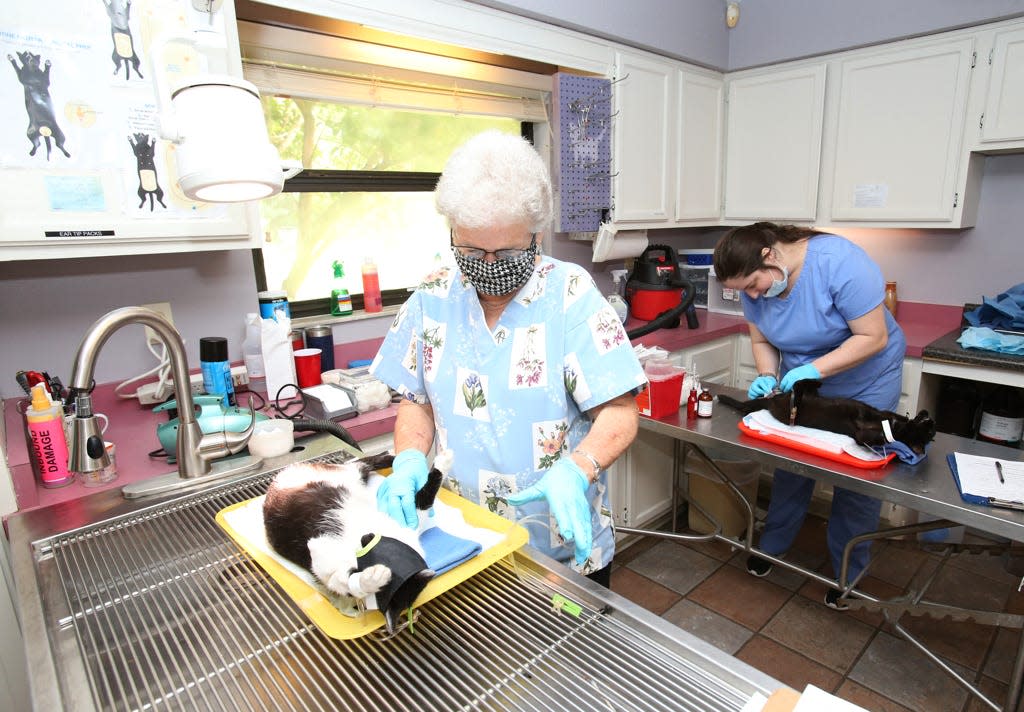Antibiotics can be crucial in treating pets. But bad side effects are possible. Here are 5

Antibiotics play a crucial role in veterinary medicine, helping to combat bacterial infections in dogs and cats. However, it is important for pet owners to be aware of potential side effects that can arise from antibiotic use.
In this article, we will discuss five severe side effects associated with commonly prescribed antibiotics. Understanding these risks will enable pet owners to make informed decisions and ensure the well-being of their furry companions.
Gastrointestinal disturbances
One of the most common side effects of antibiotics in dogs and cats is gastrointestinal disturbances.
Antibiotics can disrupt the delicate balance of beneficial bacteria in the gastrointestinal tract, leading to an overgrowth of harmful bacteria such as Clostridium difficile. This can result in a condition called antibiotic-associated diarrhea or, in severe cases, antibiotic-associated colitis.
Symptoms include watery or bloody diarrhea, abdominal pain and fever. Probiotics or other supportive therapies may be recommended by your veterinarian to restore the normal gut flora and alleviate these side effects.
Allergic and/or autoimmune reactions
Just like humans, animals can develop allergic reactions to antibiotics. Symptoms may include itching, hives, facial swelling, difficulty breathing and even anaphylaxis in severe cases.
Allergic reactions can occur shortly after starting antibiotic treatment or even after prolonged use. If you notice any signs of an allergic reaction, it is essential to seek immediate veterinary attention to prevent further complications. Benadryl OTC, at 1 milligram per pound orally, can be given while in transit to the veterinarian’s office.
Some reactions are more serious and include an autoimmune reaction in which pets suffer bloody diarrhea or vomit, lethargy, bruising and overall weakness.
Liver and kidney damage
Although rare, certain antibiotics have the potential to cause liver and kidney damage in dogs and cats. Prolonged or high-dose antibiotic therapy can lead to hepatotoxicity (liver toxicity) or nephrotoxicity (kidney toxicity).
Symptoms may include jaundice, increased thirst and urination, lethargy and loss of appetite. Regular monitoring of liver and kidney function through blood tests is crucial when administering these antibiotics to minimize the risk of severe side effects.
Neurological disorders
Enrofloxacin, a commonly prescribed antibiotic, belongs to the fluoroquinolone class, which has been associated with neurological side effects in dogs and cats.
In cats, retinal degeneration is a big concern and can result in blindness. If your cat is prescribed this antibiotic, you need to monitor for dilated pupils, incoordination or any change in behavior.
Metronidazole is another commonly prescribed antibiotic that can cause neurological symptoms when used for a prolonged time. Luckily, most pets recover once the antibiotics are discontinued.
Water might be fun for your dog But dangers are everywhere. Here are some safety tips
Esophageal strictures
Two common antibiotics that could become embedded in the esophageal mucosa are Doxycycline and Clindamycin. The risk is higher for cats and they can present with regurgitation, drooling, choking or gagging.
To ensure that the cats are safe, try the liquid forms of these medications or make sure to administer them with food.

As responsible pet owners, it is crucial to closely monitor our furry companions during antibiotic treatment and promptly report any concerning symptoms to our veterinarians.
Mitsie Vargas of Orchid Springs Animal Hospital in Winter Haven is a fellow of the American Academy of Veterinary Acupuncture and author of "Alt-Vet: The Revolutionary Pet Care and Longevity Solution." www.osahvets.com
This article originally appeared on The Ledger: Is your pet on antibiotics? Here are 5 side effects to watch out for

